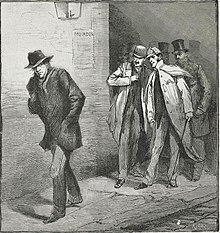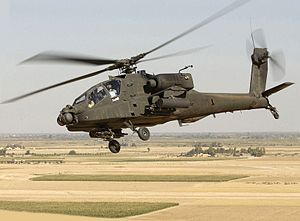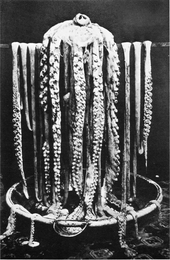September 30 is the 273rd day of the year (274th in leap years) in the Gregorian calendar. There are 92 days remaining until the end of the year.
Holidays
Agricultural Reform (Nationalization) Day (São Tomé and Príncipe)
Birth of Morelos (Mexico)
Blasphemy Day (United States, Canada, other countries)
Christian Feast Day:
Independence Day or Botswana Day, celebrate the independence of Botswana from United Kingdom in 1966.
International Translation Day (International Federation of Translators)
General events on September 30th
In 489, Battle of Verona: The Ostrogoths under king Theodoric the Great defeat the forces of Odoacer for the second time at Verona (Northern Italy).
In 737, Battle of the Baggage: Turgesh drive back an Umayyad invasion of Khuttal, follow them south of the Oxus and capture their baggage train.
In 1399, Henry IV is proclaimed King of England.
In 1541, Spanish conquistador Hernando de Soto and his forces enter Tula territory in present-day western Arkansas, encountering fierce resistance. The Tula were a Native American tribe that lived in what is now western Arkansas.
In 1551, A coup by the military establishment of Japan’s Ōuchi clan forces their lord to commit suicide, and their city is burned.
In 1744, France and Spain defeat the Kingdom of Sardinia at the Battle of Madonna dell’Olmo.
In 1791, The first performance of The Magic Flute, the last opera by Mozart to make its debut, took place at Freihaus-Theater auf der Wieden in Vienna, Austria.
In 1791, The National Constituent Assembly in Paris is dissolved; Parisians hail Maximilien Robespierre and Jérôme Pétion as “incorruptible patriots”.
In 1813,Battle of Bárbula: Simón Bolívar defeats Santiago Bobadilla.
In 1860, Britain’s first tram service begins in Birkenhead, Merseyside.
In 1882, Thomas Edison‘s first commercial hydroelectric power plant (later known as Appleton Edison Light Company) begins operation on the Fox River in Appleton, Wisconsin, United States.

In 1888, Jack the Ripper kills his third and fourth victims, Elizabeth Stride and Catherine Eddowes. Jack the Ripper is the best-known name for an unidentified serial killer generally believed to have been active in the largely impoverished areas in and around the Whitechapel district of London in 1888. The name “Jack the Ripper” originated in a letter written by someone claiming to be the murderer that was disseminated in the media. The letter is widely believed to have been a hoax and may have been written by journalists in an attempt to heighten interest in the story and increase their newspapers’ circulation. In both the criminal case files and contemporary journalistic accounts, the killer was called “the Whitechapel Murderer” and “Leather Apron”.
In 1895, Madagascar becomes a French protectorate.
In 1903, The new Gresham’s School is officially opened by Field Marshal Sir Evelyn Wood.
In 1906, The Real Academia Galega, Galician language‘s biggest linguistic authority, starts working in Havana.
In 1907, McKinley National Memorial, final resting place of assassinated U.S. President William McKinley and his family, dedicated in Canton, Ohio.
In 1927, Babe Ruth becomes the first baseball player to hit 60 home runs in a season.
In 1931, Start of “Die Voortrekkers” youth movement for Afrikaners in Bloemfontein, South Africa.
In 1935, The Hoover Dam, astride the border between the U.S. states of Arizona and Nevada, is dedicated.
In 1938, At 2:00 am, Britain, France, Germany and Italy sign the Munich Agreement, allowing Germany to occupy the Sudetenland region of Czechoslovakia.
In 1938, The League of Nations unanimously outlaws “intentional bombings of civilian populations”.
In 1939, General Władysław Sikorski becomes commander-in-chief of the Polish Government in exile.
In 1941, World War II: Holocaust in Kiev, Ukraine: German Einsatzgruppe C complete Babi Yar massacre.
In 1945, The Bourne End rail crash, in Hertfordshire, England, kills 43
In 1947, The Islamic Republic of Pakistan and Yemen join the United Nations.
In 1947, The World Series, featuring the New York Yankees and the Brooklyn Dodgers, is televised for the first time.
In 1949, The Berlin Airlift ends.
In 1954, The U.S. Navy submarine USS Nautilus is commissioned as the world’s first nuclear reactor powered vessel.


In 1955, Film star James Dean dies in a road accident aged 24. He was an American actor. He is remembered as a cultural icon of teenage disillusionment and social estrangement, as expressed in the title of his most celebrated film, Rebel Without a Cause (1955), in which he starred as troubled teenager Jim Stark. The other two roles that defined his stardom were loner Cal Trask in East of Eden (1955) and surly ranch hand Jett Rink in Giant (1956). Dean’s premature death in a car crash cemented his legendary status. He became the first actor to receive a posthumous Academy Award nomination for Best Actor, and remains the only actor to have had two posthumous acting nominations. In 1999, the American Film Institute ranked him the 18th best male movie star of Golden Age Hollywood in AFI’s 100 Years…100 Stars list.
In 1962, Mexican-American labor leader César Chávez founds the National Farm Workers Association, which later becomes United Farm Workers.
In 1962, James Meredith enters the University of Mississippi, defying segregation.
In 1965, The Lockheed L-100, the civilian version of the C-130 Hercules, is introduced.
In 1965 The 30 September Movement attempts a coup against the Indonesian government, which is crushed by the military under Suharto and leads to a mass anti-communist purge, with over 500,000 people killed.
In 1966, The British protectorate of Bechuanaland declares its independence, and becomes the Republic of Botswana. Seretse Khama takes office as the first President.

In 1967 Washington v. Texas is a US Supreme Court case about the right of criminal defendants to have witnesses testify on their behalf. The Court decided that the Compulsory Process Clause of the Sixth Amendment to the Constitution applied in state courts as well as federal courts. At his trial Jackie Washington had attempted to call his co-defendant as a witness but was blocked because state law prevented co-defendants from testifying for each other, under the theory that they might lie for each other on the stand. The Supreme Court reasoned that the Due Process Clause of the Fourteenth Amendment gives defendants the right to fair proceedings, including the right to compel defense witnesses to testify. In previous cases, the Supreme Court had ruled that the Fourteenth Amendment, which was adopted after the Civil War, makes many federal guarantees in the Bill of Rights applicable to the states. The impact of Washington was narrowed by a later case, Taylor v. Illinois(1988), in which the Court said that “countervailing public interests” could be balanced against a defendant’s right to present witnesses.
In 1967, BBC Light Programme, Third Programme and Home Service are replaced with BBC Radio 2, 3 and 4 Respectively, BBC Radio 1 is also launched with Tony Blackburn presenting the first show.
In 1968, The Boeing 747 is rolled out and shown to the public for the first time at the Boeing Everett Factory.
In 1970, Jordan makes a deal with the Popular Front for the Liberation of Palestine (PFLP) for the release of the remaining hostages from the Dawson’s Field hijackings.
In 1972, Roberto Clemente records the 3,000th and final hit of his career.

In 1975, The Hughes (later McDonnell-Douglas, now Boeing) AH-64 Apache makes its first flight.
In 1977, Because of US budget cuts and dwindling power reserves, the Apollo program’s ALSEP experiment packages left on the Moon are shut down.
In 1979, The Hong Kong MTR commences service with the opening of its Modified Initial System (aka. Kwun Tong Line).

In 1980, Ethernet specifications are published by Xerox working with Intel and Digital Equipment Corporation.
In 1982, Cyanide-laced Tylenol kills six people in the Chicago area. Seven are killed in all.
In 1986, Mordechai Vanunu, who revealed details of Israel’s covert nuclear program to British media, is kidnapped in Rome, Italy by the Israeli Mossad.
In 1990, The Dalai Lama unveils the Canadian Tribute to Human Rights in Canada’s capital city of Ottawa.
In 1993, An earthquake hits India‘s Latur and Osmanabad district of Marathwada (Aurangabad division) in Maharashtra state leaving tens of thousands of people dead and many more homeless.
In 1994, Aldwych tube station (originally Strand Station) of the London Underground closes after eighty-eight years of service.
In 1994, Ongar railway station, the furthest London Underground from Central London, closes.
In 1996, United States Congress passes a legislative action that bars the possession of firearms for people who were convicted of domestic violence, even misdemeanor level. What?
In 1999, Japan’s second worst nuclear accident at a uranium reprocessing facility in Tōkai-mura, northeast of Tokyo.

In 2004, The AIM-54 Phoenix, the primary missile for the F-14 Tomcat, is retired from service. Almost two years later, the Tomcat is retired. The Phoenix was the United States’ only long-range air-to-air missile. The combination of Phoenix missile and the AN/AWG-9 guidance radar was the first aerial weapons system that could simultaneously engage multiple targets. Due to its active radar tracking, the brevity code “Fox Three” was used when firing the AIM-54. Both the missile and the aircraft were used by Iran and the United States Navy. In US service both are now retired, the AIM-54 Phoenix in 2004 and the F-14 in 2006. They were replaced by the shorter-range AIM-120 AMRAAM, employed on the F/A-18 Hornet and F/A-18E/F Super Hornet – in its AIM-120D version, the latest version of the AMRAAM just matches the Phoenix’s maximum range. The AIM-54 is credited with 62 air-to-air kills, all scored by Iran during the long Iran-Iraq War. Following the retirement of the F-14 by the U.S. Navy, the weapon’s only current operator is the Islamic Republic of Iran Air Force.

In 2004, The first images of a live giant squid in its natural habitat are taken 600 miles south of Tokyo.
In 2005, The controversial drawings of Muhammad are printed in the Danish newspaper Jyllands-Posten.
In 2009, The 2009 Sumatra earthquakes occur, killing over 1,115 people.
In 2016, Hurricane Matthew became a Category 5 hurricane, making it the strongest hurricane to form in the Caribbean Sea, since Hurricane Felix in 2007.
In 2016, Two paintings with a combined value of $100 million are recovered after having been stolen from the Van Gogh Museum in 2002.
In 2017, Titus Zeman, a Slovak Roman Catholic priest, is beatified.
